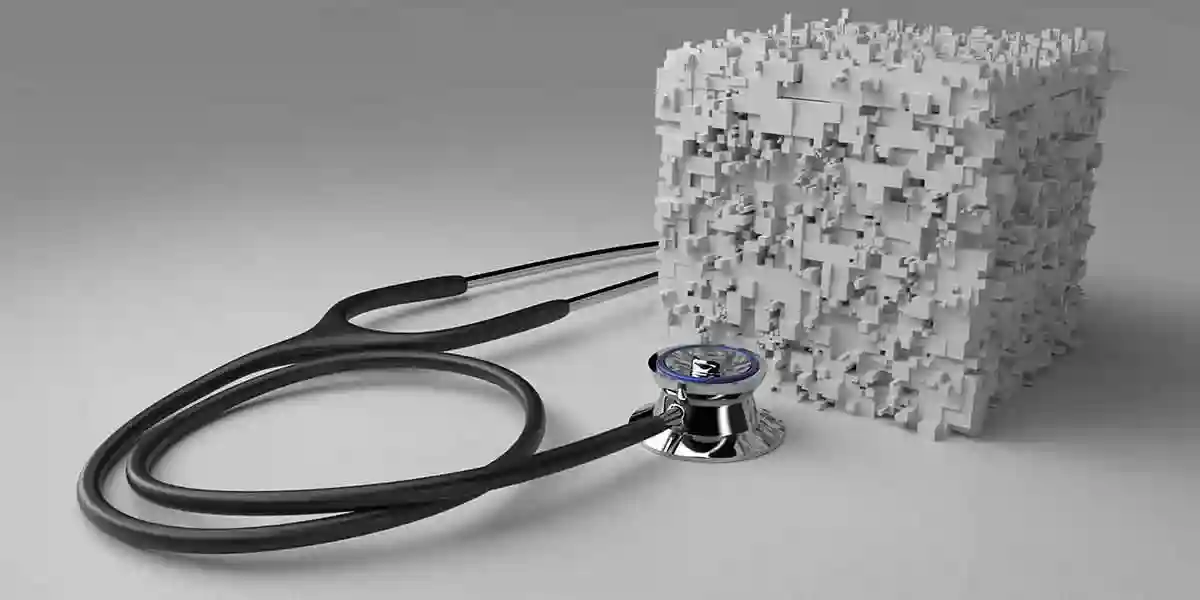
Mar 17, 2023
Blog Life Sciences Healthcare is on the cusp of a digital revolution. How is blockchain helping maximize efficiency?
Healthcare is on the cusp of a major transformation, one that will see systems, medical records, and care digitalized. As systems become interoperable and more IoT devices enter the healthcare matrix, security becomes an even greater issue. This is driving healthcare providers to seek out the possibilities of blockchain.
As a decentralized digital ledger technology, blockchain can help enhance digital security in healthcare. It allows patients to access their health data safely and enables secure transactions. This will play a key role in mitigating the threat of fraud and data breaches – which are, at this stage, increasing in number.
Blockchain has extraordinary potential to revolutionize healthcare – and this potential is beginning to become realized. BCC Research estimates that the market for blockchain technology in healthcare will witness growth at a CAGR of 61.1% between 2022-2027. This staggering percentage will bring the market to a value of around $7 billion by the end of this period.
The integration of blockchain technology into healthcare will offer numerous benefits, with data security being top of the list. But there are several advantages, including:
BCC Research’s recent report Global Blockchain Technology in Healthcare provides an in-depth view into the market and technology background for this sector. Download your complimentary report overview or purchase the report in full here.
Healthcare providers are no strangers to compliance, financial, and operational challenges. These range from streamlining complex multiparty engagements and maintaining patient data integrity to auditing the prescription drug supply chain. With blockchain technology’s ability to help reduce costs, fix administrative inefficiencies, and drive profits, promising applications are emerging.
Professional credentialing in healthcare is an expensive process. Caregivers are required to maintain their separate credentials with dozens of organizations, which can be costly. Blockchain can help spread out costs with decentralized credentials. For example, Nashville-based Hashed Health has created a blockchain exchange for driving professional credentialing. Through this, healthcare providers can leverage a single shared source that offers the most verified and recent credential information associated with each exchange member.
Blockchain-based smart contracts are a key innovation, driving transparency in typical healthcare ecosystems. The technology is fostering trust among industry stakeholders including doctors, hospitals, specialty pharmacies, and health plan providers. With the use of blockchain technology, healthcare payers and drug makers will be able to write and encode smart contracts to enforce negotiated pricing for prescription drugs. The system triggers an instant payment to the manufacturer when a patient orders any drug in the favored formulary.
Evidently, blockchain has huge scope to transform healthcare. Patients will receive better care and costs will be reduced considerably, a win-win for both patient and provider. But the industry should continue to foster an atmosphere of growth and innovation to truly maximize the potential of blockchain. Some key future developments that could help bolster blockchain include:
Blockchain is gaining momentum around the globe. In healthcare, this means a patient-centric approach can be prioritized, and critical patient data can be effectively managed. With tremendous growth on the cards, there’s never been a better time to deepen your understanding of the market for blockchain within healthcare.
Consider becoming a member with our research library to gain access to the full range of reports within the healthcare category. Enquire Here.
We have also published a report on the megatrends characterizing healthcare, digitalization and sustainability. Grab your copy here.

Olivia Lowden is a Junior Copywriter at BCC Research, writing content on everything from sustainability to fintech. Before beginning at BCC Research, she received a First-Class Master’s Degree in Creative Writing from the University of East Anglia.
In today’s fast-paced biomedical world, researchers and pharmaceutical companies...

Radiopharmaceuticals represent a cutting-edge frontier in modern medicine, offer...

Implantable Remote Patient Monitoring (IRPM) devices are revolutionizing healthc...

We are your trusted research partner, providing actionable insights and custom consulting across life sciences, advanced materials, and technology. Allow BCC Research to nurture your smartest business decisions today, tomorrow, and beyond.
Contact UsBCC Research provides objective, unbiased measurement and assessment of market opportunities with detailed market research reports. Our experienced industry analysts assess growth opportunities, market sizing, technologies, applications, supply chains and companies with the singular goal of helping you make informed business decisions, free of noise and hype.